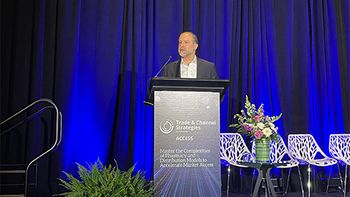
- Pharmaceutical Commerce - November/December 2016
Turning up the heat on PBM’s role in drug pricing
Will employer benefit plans lose their enthusiasm for PBMs?
It’s a forgone conclusion that most of the consumer public doesn’t like pharma companies’ pricing policies, as headlines were grabbed last year by the dust-up over Valeant and Turing Pharma, and then the Mylan EpiPen controversy that played out recently. Surrounding these were the shock to healthcare payers over the original $84,000 cost of Sovaldi, the Gilead Sciences hep C drug; the forestalled blow-up over PCSK9 anti-cholesterol drugs and, most recently, Express Scripts’ announced plan to corral pricing (and market share) of a variety of anti-inflammatories, led by Amgen’s Enbrel and AbbVie’s Humira. In an election year, all this is playing out at a louder-than-normal volume.
Now, however, the spotlight is shining brighter on another part of the drug pricing battleground: the pharmacy benefit managers (PBMs). That target was hinted at when Heather Bresch, CEO of Mylan, said that the company would supply an authorized generic of its own branded EpiPen product “because of the complexity and opaqueness of today’s branded pharmaceutical supply chain.” A
Mark Merritt, president of a PBM trade group, Pharmaceutical Care Management Assn., responded to the Mylan finger-pointing with some fun-with-numbers claims of its own. While stating that “For EpiPens, price concessions negotiated by PBMs have significantly reduced costs to the system while overall average patient cost share—including both copays and coinsurance—has decreased from 26% of list price in 2009 to 11% in 2016,” PCMA didn’t point out that 26% of the approximately $100 cost of EpiPen back then was less than the 11% cost of a $600 prescription today.
In early October, only two days after CMS Acting Administrator Andrew Slavitt delivered a letter to Congressmen agreeing that Mylan’s now-controversial EpiPen was misclassified as a generic, improperly entitling it to a lower discount under a Medicaid program, the company has reached a preliminary settlement with HHS and the Dept. of Justice to pay a fine of $465 million, resolving “all potential rebate liability claims by federal and state governments” while admitting no guilt, according to a Mylan announcement. Terms of a corporate integrity agreement with the Office of Inspector General of HHS are yet to be finalized.
The penalty is a stiff one, even given the highly criticized price hikes the company has imposed in recent years, and the efforts it has made to expand the market for the drug. Slavitt’s letter detailed some $960 million in gross sales between 2011 and 2015 under the Medicaid Drug Rebate Program, which was discounted by $163 million during that span. Mylan had expected to gross around $1.2 billion this year with the drug; a reasonable guess at the fraction that would fall under Medicaid is around $400 million. So, for six-year sales of about $1.5 billion, Mylan is disgorging $465 million, or 31% of sales, on top of the 13% rebate that it had been providing to states and the federal government. On the other hand, the hit that Mylan is taking on earnings is relatively minor—it projects a drop from predicted 2016 earnings per share from $4.85–5.15 to $4.70–4.90, and the majority of that is due to the company beginning to sell a lower-cost generic version of EpiPen.
Heather Bresch, Mylan CEO, said that the settlement is “another important step in Mylan’s efforts to move forward and bring resolution to all EpiPen Auto-Injector related matters,” and investors seem to agree: in after-hours trading, Mylan’s stock price jumped 10%.
Senator Amy Klobuchar (D-MN), one of the first members of Congress to call Mylan’s pricing practices into question this summer, issued a statement applauding the settlement and declaring that “[T]his must be the tip of the iceberg. If other drugs are misclassified, and surely EpiPen isn’t the only one, the public deserves to know it, the taxpayers need to get their money back, and the process needs to be changed to stop this from happening again.” Indeed, one of the puzzles of the Mylan misclassification issue is why CMS did not go beyond simply warning Mylan that its drug was misclassified and to initiate its own investigation.
Formulary managementThe anti-inflammatory program of Express Scripts, “Inflammatory Conditions Care Value Program,” involves close management of patients needing this therapy through its Accredo Specialty Pharmacy. Express Scripts contends that the category is dominated by “the two major nonspecific anti-inflammatory medications, which together currently represent 73% of the US market share for this therapy class” (i.e., Humira and Enbrel), while other “niche, single-indication products will be able to compete head-to-head with the nonspecific products, and this more precise approach to formulary management will enable Express Scripts to leverage the additional competition to make this therapy class more affordable for participating plans.” Patients currently on the market-leading drugs will be able to stay with them, and patients put on one of these other drugs but who stop using them will generate a rebate to health plans and, presumably, the patient.
In mid-September, an analyst from Leerink Swann, an investment bank, noted that Humira’s price has been increasing on average by 6% every three months for the past three-and-a-half years, while Enbrel has been averaging a 3.5% price increase over that span. In the
PCMA is fighting a many-front battle over its position in the drug-pricing battles. The association published a survey—not of its clients, many of whom are health plans or large employers, but of 400 owners and executives of companies of all sizes. By a 3:1 margin, these businesspeople believe that the private sector is a more effective way to address drug pricing than government; and that nine out of 10 are “satisfied” with the PBM resources they employ or use. Specifically, when asked to choose their top two objectives, 54% of respondents said reducing overall costs, and 45% said reducing premiums and other out-of-pocket costs for consumers. Also, “very few” cited issues such as “transparency” of payments to drugstores, or rebates to pharmacy benefit managers.
“Employers’ concerns about high drug prices are real but so are their fears that new government mandates—however well intended—would make things worse,” said Mark Merritt, PCMA president, in a statement. PCMA, and its members, have a long track record of demonstrating better health outcomes and cost savings through their programs, but the question is growing, “At what cost?”
However, the options are not either government pricing mandates or sticking with PBMs; the Business Insider article points to an effort among a group of large employers, the Healthcare Transformation Alliance, as something of a rebellion against healthcare intermediaries like PBMs. The Washington, DC-based group, still forming up, doesn’t call out PBMs directly, but does state that “employers rely on a broad range of organizations to procure health care services, and often these organizations serve interests not aligned with the interests of employers and the people they employ,” and that “Patients, along with the health care system, too often pay for prescription drugs that are not the most cost effective for their care … This happens in part because incentives currently built into the delivery system have made it habitual to pass costs along.”
Another confrontation is a closely watched referendum in California, Proposition 61, the Drug Price Standards Initiative, which calls for state agencies to pay the same prices as the US Dept. of Veterans Affairs. VA pricing is usually negotiated directly between manufacturers and VA—so this would bring the vaunted “single payer” system closer to fruition. VA drug costs are generally regarded as some of the lowest available; the catch is that not all drugs are on the VA formulary. Prop 61 will be one of many initiatives California voters will be deciding on Election Day in November.
As with drug products themselves, there isn’t a one-size-fits-all solution to rising drug prices; pharma executives will need to monitor ongoing developments closely in the months ahead.
Articles in this issue
about 9 years ago
The medical crisis that didn’t happenabout 9 years ago
A conversation with Jim Mullen, Patheonabout 9 years ago
Active packaging protects oral solid formulationsabout 9 years ago
ATCC broadens its resources for cell lines to research cancerabout 9 years ago
A new approach to pharma supply-chain collaborationabout 9 years ago
Pharma traceability: year in reviewabout 9 years ago
Pharma seeks growth in eyecareabout 9 years ago
Putting drug administration in patient’s handsNewsletter
Stay ahead in the life sciences industry with Pharmaceutical Commerce, the latest news, trends, and strategies in drug distribution, commercialization, and market access.





